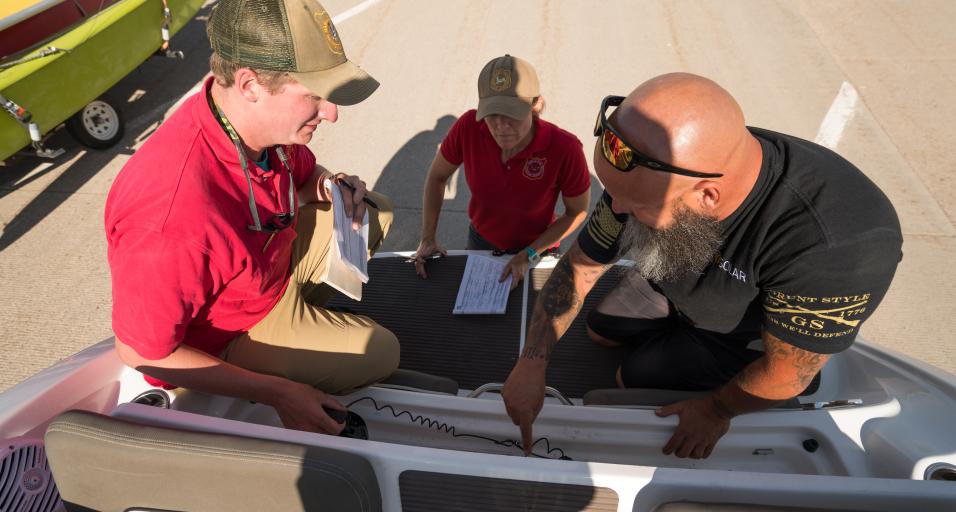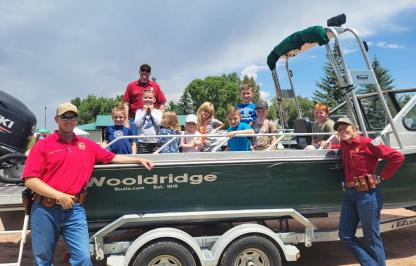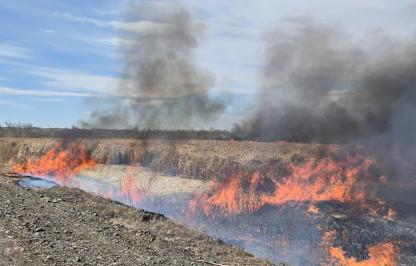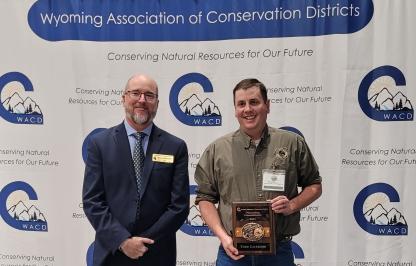Flaming Gorge boaters and recreationalists; the Wyoming Game and Fish Department needs your input. Game and Fish is finalizing a plan that will guide actions in the event that aquatic invasive species — like zebra and quagga mussels — are discovered at Flaming Gorge Reservoir. If mussels are ever discovered at the Gorge, there will be changes that impact boaters and other recreationalists in an effort to prevent their further spread throughout Wyoming and the nation.
Game and Fish is asking anyone who boats, fishes or spends time enjoying the water at Flaming Gorge to take time to review the draft rapid response plan and provide input on the implementation through a short feedback form. Anyone can submit feedback until March 1.
The response plan will only go into effect if invasive mussels are detected.
“Wyoming has been working hard for over a decade to keep aquatic invasive species out of Wyoming. We have been successful with the public’s help stopping at checkstations and making sure to clean, drain, dry,” said Alan Osterland, chief of fisheries.
However, Game and Fish is concerned that zebra and quagga mussels could make their way to Flaming Gorge. That’s why the department has developed a plan to act quickly if mussels are detected.
“We want your help to finalize these rapid response plans and want you to be aware of the changes that could occur if mussels are found. Changes could be significant to boaters and others,” Osterland said.
If mussels are detected at Flaming Gorge, boaters could see some of the following changes immediately.
- Close reservoir to all shore launching and close Brinegar’s Ferry and Upper Marsh Creek boat ramps
- Limit boat launching and trailering to Firehole Canyon, Buckboard Crossing and Anvil Draw ramps.
- Establish exit check stations at or near each of the three open boat ramps.
- Require inspections for all exiting watercraft and, if necessary, decontamination.
- Begin construction on strategically placed highway check stations.
A full list of impacts for all user groups, including a timeline of potential changes and monitoring schedule, can be found in the plan.
“Keeping our state free of AIS like zebra and quagga mussels is a top priority of Game and Fish. If detected in Wyoming’s waters, they could have catastrophic impacts to the water, the biodiversity of the area, recreation and even municipalities. A mussel infestation will also be very expensive to Wyoming and our residents,” Osterland said.
Game and Fish developed this draft plan in collaboration with Utah Division of Wildlife Resources, the Ashley National Forest and Bureau of Reclamation with input from stakeholders and businesses whose work is related to Flaming Gorge.
Game and Fish plans to present the Flaming Gorge rapid response plan, along with the input from the public, to the Wyoming Game and Fish Commission at their April meeting for approval. Over the next several months, the department will roll out draft plans for 22 additional high-priority waters in Wyoming for public input.
For more information on Game and Fish’s efforts to protect Wyoming from aquatic invasive species, visit the AIS webpage.




